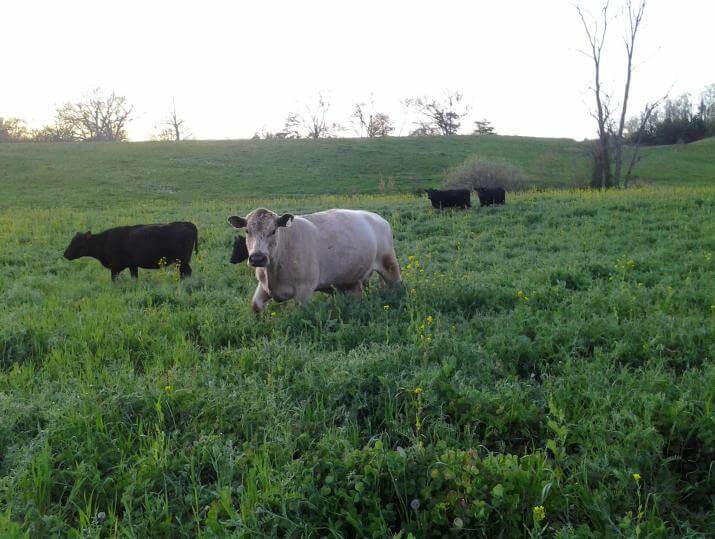Ray’s Crazy Fall Mix

This is a versatile cool season mix made up of grasses, legumes, and brassicas that can be used a short-term cover crop, a soil-building transition crop to renovate depleted soils, a grazing mix, and a wildlife food plot. It also contains several blooming species that, if left to grow and flower, will attract beneficial species. The mix is beneficial for both no-till and conventional-till soils and consists of all Non-GMO seeds.
*Formula is subject to change based on product availability
Mixture Components
Winter Pea
A winter hardy, purple-flowered pea that is designed to increase protein if grazed and/or as a nitrogen producer if allowed to flower.
Spring Oats
Quite productive for grazing or cover crop. With good leaf to stem ratio, it makes a highly palatable and digestible forage. Will winter kill in many regions, but may not winter kill throughout the Piedmont and Coastal Plain VA, NC, SC regions. Even killed oat residue makes a good protective buffer over winter.
Triticale
Triticale anchors the mix as a strong performer for winter-hardiness, yield and quality. It grows rapidly and tall, and provides shelter to less winter hardy species.
Crimson Clover
Crimson is the premier winter annual clover for both forage and nitrogen production. It produces high biomass and if allowed to flower, returns a high amount of nitrogen back to the soil.
Hairy Vetch
Hairy vetch works as a great cover crop for topsoil conditioning and weed suppression. If allowed to flower, it returns a high amount of nitrogen back to the soil.
Ryegrass
With a dense, fibrous root system, ryegrass is a fantastic cover crop that also produces high biomass and great forage quality. Has excellent winter hardiness for the southern regions.
Turnip
It will winter kill in many regions but may survive the winter throughout the Piedmont and Coastal Plain VA, NC, SC regions.
Daikon Radish
With a deep taproot and large tuber, Daikon radish is great for increasing organic matter in the soil, breaking compaction and scavenging nitrogen and other inputs.
Planting Instructions
Drilling at 0.5-1” depth into moist soils is recommended. Calibrate the drill to ensure you are putting out the correct seeding rate.
| Seeding Rate | 40-50 lbs/ac |
|---|---|
| Planting Depth | 0.5-1" |
| Seeding Dates | Late summer/early fall |
| Possible Grazing Dates | late fall/late spring |
| Target Harvest Height | 8-15" |
| Target Residual Height For Regrowth | 3-6" |